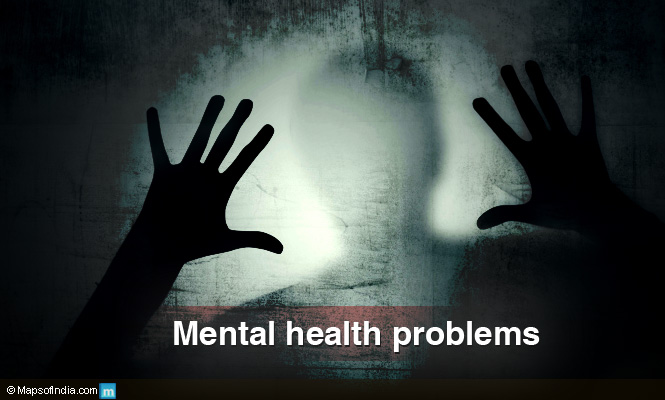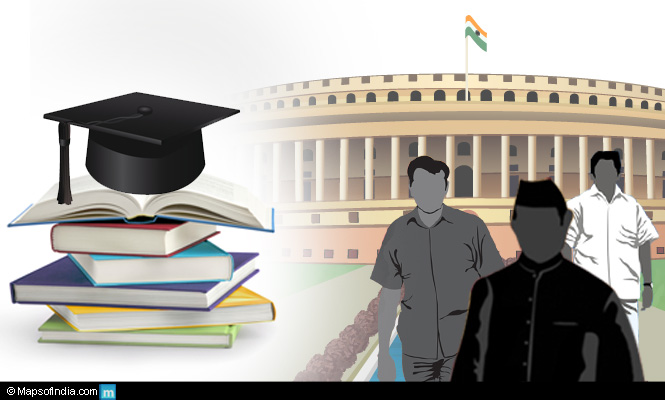The health of a human being constitutes both the physical health and the mental health. While most of the people in India consider taking care of the physical aspect of one’s health as very important, sometimes they fail to realise that keeping a healthy mind is just as important. In an article published in the Indian Journal of Psychiatry, it has been mentioned that because the mind was seen as separate from the body, it is considered as untreatable and irredeemable. However, a healthy body without a healthy mind is of no use; in fact it may be, in most cases, detrimental to the society. Good health then is inclusive of physical, mental and social well-being and does not signify just the absence of some infirmity.
Psychiatric treatment in India is a taboo subject. In a country, which is forging ahead to join the other powerful countries, most of the people still believe that any mental illness means the person is mad and is no longer fit to be in the society. The situation in urban India is improving with better awareness but things haven’t changed much in most of rural India. Psychiatric treatment may be accepted by the higher class, including the celebrities, and sometimes by the upper middle class, but it is a taboo with the lower middle class and by the people in the rural areas, who constitute the major part of the population of India.
Harm done by mental health problems
The Nirbhaya incident comes to mind when I think about mental illness. How else can one explain the horrendous act of penetrating the girl with an iron rod, fatally injuring her genitals, and intestines? I am sure none of us in our wildest dreams can even imagine such an act. However, it was done, and most probably by a juvenile. He is a perfect example of a sick mind. In every case of domestic violence one reads about, one can see a sick mind indulging in vile acts. Children are being raped by grown-ups. If that is not an indication of a mentally ill individual at play, then what is?
Mental illness may not always result in culprits. But if not detrimental to the society, it becomes harmful for the individual himself/herself. Without prompt medical attention symptoms of stress, depression, anxiety, relationship problems, grief, addiction, learning disabilities, mood disorders and other psychological problems only get worse. In the worst case scenarios, without treatment at the hour of need, mental illness results in the patient getting committed to a mental facility or committing suicide.
The root cause of all these problems is the fact that we Indians fail to realise the requirement of medical assistance to treat a mind which is not healthy. In India, the prevalence of mental disorders ranges from 10 to 370 per 1,000 population in different parts of the country. Studies reveal that myths and misconceptions regarding mental illness are more prevalent in the rural areas. Instead of approaching a psychiatrist, these people head for the temples and shrines looking to rid the family member of the “curse” as it is often described. It is an urgent requirement that people with such misconceptions be communicated to, to instil a positive attitude, so that they come to the forefront to address any mental disorder.
Lack of psychiatrists
Research indicates that by 2020, 20% of the Indian population will be suffering from some form of mental illness. Various estimates put the number of Indians who suffer from depression at around 10 million. Depression is one of the major contributors to a shorter lifespan and poor health of individuals. However, Nimesh Desai, head of psychiatry at the New Delhi-based Institute of Human Behaviour and Allied Sciences, estimates India has fewer than 4,000 psychiatrists, and even fewer general mental health professionals.”The lack of psychiatrists is bad and the shortage of psychologists, social workers and counsellors is even more alarming,” said Desai. “It meets about five to seven percent of the projected need.” Even the available psychiatrists are predominantly in the cities and thus there is a severe lack of proper mental health care facilities in the rural areas.
Conclusion
Harsh Vardhan, who was the Health Minister till about a week ago, launched India’s first-ever National Mental Health Policy to provide universal psychiatric care to the population, 20 per cent of which are likely to be suffering from some form of mental illness by 2020.
The policy, the Minister had said, seeks to include psychiatric treatment in primary health care. Vardhan also called for decriminalizing attempt to suicide, which at present is a crime, saying that very often people having mental trouble go for the extreme step and that they need care, not prosecution.
To make things better, there has to be a conscious effort towards awareness building, education and support with regards to mental illness. Though at a glacial pace, things are improving in this field, however, there is an urgent requirement for the social stigma of being a psychiatric patient to be removed.
It’s time for a better tomorrow.
Read More:
A Reality Check on State of Mental Health in India
India’s First National Mental Health Policy in Place Now
Dignity in Mental Health
Suicides and the State of Mental Health Care in India
Laws in Place to Prevent Harassment of Women, But of What Use!
Is Exam the sole factor causing stress among students in India?
Suicides and the State of Mental Health Care in India
Psychiatric Treatment in India- A Taboo
Is Exam the sole factor causing stress among students in India?
Book Review: An Insider’s View of Emotional Traumas
How to beat stress?
Parental Pressure and Stress on Children
Stress Busters Activities
Depression? Sure, You Can Come out of It






